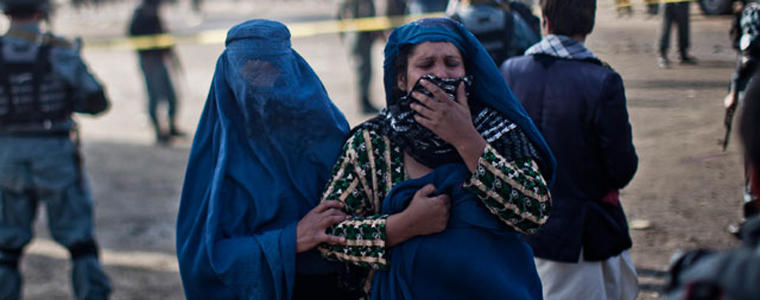Late on the evening of June 21st, seven men hidden beneath burqas stepped out of a small van and began a 10-hour assault on one of Afghanistan’s most-popular tourist retreats, Tim Luccaro talks about the Taliban’s increased willingness to target both civilians and “soft” targets with little to no strategic military value.

Late on the evening of June 21st, seven men hidden beneath burqas stepped out of a small van and began a 10-hour assault on one of Afghanistan’s most-popular tourist retreats, the Spoghmai Hotel at Qargha Lake. Qargha, once the property of the Afghan royal family, offers a welcome sanctuary from the urban bustle and detritus of Kabul city. It is one of a few places around the capital where families can get away for a weekend or picnic in relative security with friends. But on that night it became yet another place scarred by the violence that seems to be engulfing larger areas of Afghanistan. Every time there is a loss of life it is a tragedy. This most recent targeted killing of civilians has taken on a particularly disheartening pall, however. Official reports claim around 30 people were killed, but other witnesses estimate that 70 people may have died. If true, it would make it one of the largest single incidents of civilian casualties in the last 11 years.
Perhaps most concerning is the apparent escalation of the Taliban’s willingness to target both civilians and “soft” targets with little to no strategic military value. Typically, when large-scale and coordinated attacks such as this happen, they have been aimed at targets connected to the international community, its military operations or the Afghan government. No such connection existed at Qargha, no matter what specious connections Taliban spokesmen may have tried to make. Typically, when the Taliban have killed civilians, they have tended to be collateral damage as a result of attacks on another target. While there are exceptions, the targeted assassinations of influential tribal and community leaders perhaps most obvious, the most recent attack seems to be a new form of violence that goes against previous insurgent claims of valuing the protection of civilian life.
In 2006, the Taliban first formalized their rules of engagement (For a good reading on the Taliban’s Layha, see Kate Clarke’s 2011 Foreign Policy piece). The Layha, the Taliban’s operational guide, states that all parties affiliated with the movement should make every effort to prevent civilian harm. Yet this was spectacularly violated at Qargha. Thursday’s actions were not carried out on a military installation in which civilians were the unfortunate victims of a military exercise. Instead, it was a direct, targeted attack that led to the summary execution of unarmed civilians.
Also worrying is the actual justification that the attackers reportedly gave when they entered the Spoghmai Hotel - they were looking to punish and kill those who were guilty of conducting immoral behavior. Particularly brutal was the execution of women under the rationale that they were dancing or promoting prostitution, and that the executioners were upholding the tenets of Islamic law. Yet, there was absolutely no evidence that any such behavior was taking place, and the summary executions completely disregarded the millennia of jurisprudence and rights of due process that are enshrined in Islamic Law. (My USIP colleague Hamid Khan recently wrote an Olive Branch post about issues related to Islamic law and traditional practices in Afghanistan). The gunmen executed unarmed women without pause, burden of proof or concern for their innocence.
The Qargha attack hopefully does not signal the return of the brutal enforcement policies that once highlighted the Taliban regime’s Vice and Virtue Ministry in the 1990s, which were notorious for their severe punishment of moral crimes. More worrying, such extra-judicial killing is a gross violation of any standard of law. Ultimately, such actions as those in Qargha may come to undermine Taliban claims that they are fighting against a weak system of governance and corrupted institutions of law that have come to characterize the current regime. It is imperative that people call the Taliban and all other leaders out for such hypocrisy and not give them the opportunity to claim the killing of civilians is legitimate within any moral or legal framework.
It is also unfortunate that the Afghan presidential palace and many other Afghan politicians, who seem to use civilian casualties caused by ISAF actions as a political tool, have not come out nearly as strongly in decrying the targeted killings of civilians by the Taliban. The international community, particularly the UN, along with the Afghan government and people should hold all parties to the conflict equally accountable on moral grounds for the needless and tragic killing of non-combatants. The fact remains that no matter which statistics one uses, the vast majority of civilian casualties are a result of insurgent activities. And, it is only the Taliban who have knowingly and purposefully targeted Afghan civilians. Perhaps with increased focus and outrage from all avenues and parties, the targeting of civilian populations by armed groups will cease. If not the nation faces the threat of a long and violent transition that may be far too reminiscent of the chaos that ensued in the wake of the Soviets’ 1989 withdrawal from Afghanistan.



